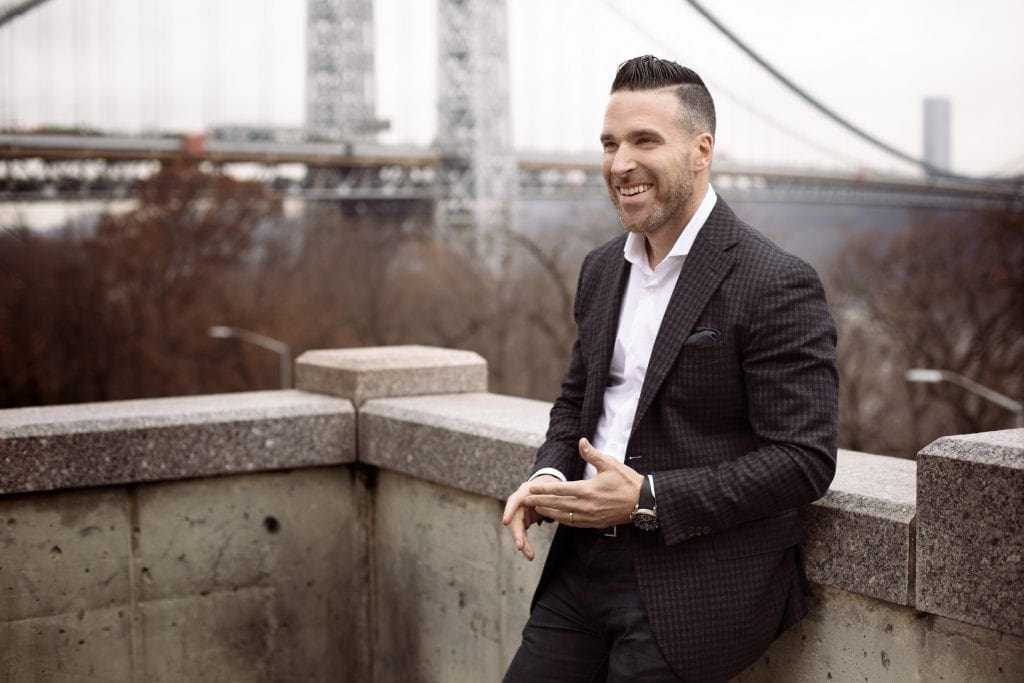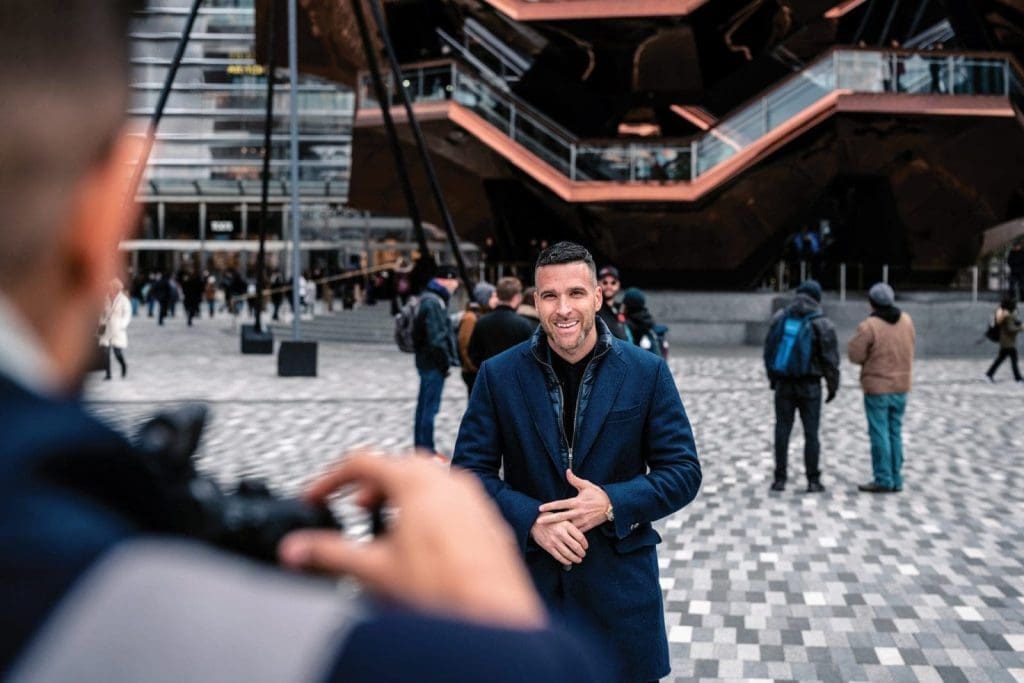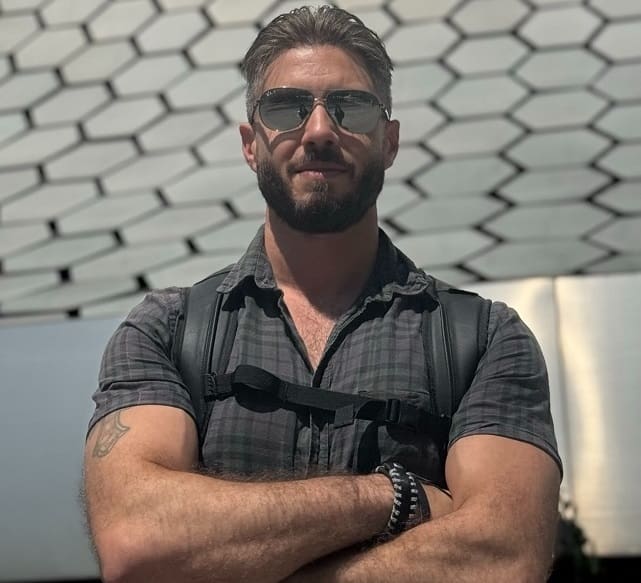—New Jersey mortgage banker Ralph Dibugnara is changing the rules for what it means to have influence. Under the name The Disruptor Network, he’s curated a group of successful industry experts, in addition to launching a TV docu-series and a scholarship-based academy to train young, aspiring real estate professionals.
Ralph Dibugnara is an influence disruptor. It would be easy to call him an influencer, but that is too narrow a definition for what he actually does. Yes, the 42-year-old Fort Lee, NJ resident has amassed a great deal of influence in the local real estate market. But Dibugnara—who is President of Home Qualified and VP of Cardinal Financial—is out to squelch false prophets in the industry by uplifting local experts who have actually paved a path to success. And by doing this, he hopes to empower a new generation of industry professionals.
For Dibugnara, his own road to success was not without struggle. Growing up in Brooklyn, he learned from an early age that in order to survive, he would have to work hard. Though there was no clear path or direction, his drive to build a better life fueled him. Today, Dibugnara is a nationally recognized mortgage banker known for his expertise with the millennial demographic—which is, no doubt, a nod to his resilience.
Fast-forward to 2020, the early months of the pandemic looked dire for Dibugnara and his mortgage business. But if his Brooklyn roots (and the 2008 financial crisis) taught him anything about weathering life’s storms, it was no time to hesitate. “When the pandemic hit, I told my staff ‘Whatever happens, we have to show up for work every day and move forward.’ As long as we’re progressively working on something, we’ll be fine in the end—we just have to keep moving.”

Dibugnara’s “moving forward” mentality has undoubtedly been one of his key ingredients to success. But in the midst of the global pandemic, it was abundantly clear that people were looking to business influencers more than ever before. Rather than add to the already convoluted sea of influencers, he built a network of industry experts under the name Real Estate Disruptors, which began with weekly webinars.
Not long after, Dibugnara put together a young, talented team to help produce a new docu-series, The Disruptor Network. He called on friends he thought of as high-level individuals in the industry like interior designer Vanessa Deleon and developer Anthony Lolli. He interviewed them on how they were weathering their own storms. “I wanted to know: Were they resilient? What were they doing to grow their business in the midst of a global pandemic?” Dibugnara recalled.
“There’s a lot of entrepreneurs out there, teaching people how to make money and get rich. How to use the system. The problem I have with that is, a lot of the time, you’re not getting people with actual substance. Did they build a business? Did they fail? Did they succeed? The show is really to highlight entrepreneurs who have done it and who are willing to help others and mentor. There’s a lot of false prophets on social media. Sometimes, you can’t tell who is real. It was important to me to go into my network and find people I felt were real.”
Prior to the show’s production, Dibugnara was offered another gig—a real estate-based reality show. But the more he thought about it, the more it sounded like the same “influencer” fluff, content devoid of any real value. “I wanted to show people what we do every day and highlight who we wanted to highlight,” he explained. “I started calling in favors and we began production. Everyone knew it was self-funded and wasn’t high-paying, but it gave people a chance to use it for branding and to get their story out. We really just started filming what we’ve already been doing.”
When matters of social justice arose in 2020, Dibugnara knew there was an opportunity to do even more than disrupt the chain of influence—something to perhaps even help break generational struggles.
“I’ve always wanted to create a system where we could mentor people within my business. When all of the protests began, I was conflicted on how I could possibly help. What was the best use of my time? What came to me was, I wanted to help people get access to a better life. I know real estate. So I wanted to create a school where I can teach people. I’m going to teach them for free. We’ll give them scholarships so they can learn how to be either a mortgage loan officer or a real estate agent. I’m going to get them licensed and put them out into the world.”

A big part of success, in business or life, is how you prepare. Dibugnara’s academy is aimed not only at giving students the tools they need to achieve success in real estate, but also skills they need for everyday life. “We’re looking for a certain age range. I’m going to target places where I feel people are underserved; people who are not getting the opportunity that they need. I’m also going to promote it on all the bigger real estate platforms to try to get the best candidates. There are going to be aspects of it that people may not want to be a part of. There’s going to be a fitness aspect to it. There’s going to be a life aspect. I want people to leave here being tuned in to a better place—not just have a license,” Dibugnara said.
As with The Disruptor Network docu-series, the academy is meant to inspire and teach aspiring professionals from a place of success. “I’m not going to tell you that you’re going to make a million dollars this year because I don’t think you can,” Dibugnara explained. “I’ve put thousands and thousands of hours into my business. That’s how I’ve gotten there. I want to teach people the skills to get there. Some people learn through books and studying, but some can’t. They need practical experience. That’s what the academy is going to do. It’s not a classroom; it’s about getting in the field—something that will help students be functional in the future. I think people have to make mistakes and get the experience of doing it.
“I grew up in Brooklyn in an all Italian neighborhood. There are stereotypes that are present in your brain when you leave those neighborhoods. If you’re not smart enough to get past the ignorance of it, you can really be stuck in that forever. My family is mixed race, but I grew up in an ignorant place. It wasn’t enough for me to just supersede that ignorance, I have to do something to effect change. This academy is my contribution.”
Michael is the Editor-in-Chief of New Jersey Digest and Creative Director at X Factor Media. A Bergen County native, he discovered his passion for storytelling while studying at Montclair State University. In addition to his work in journalism and media, Michael is an avid fiction writer. Outside the office, he enjoys kayaking, a bold glass of Nebbiolo, and the fine art of over-editing.
- Michael Scivolihttps://thedigestonline.com/author/mscivoli/
- Michael Scivolihttps://thedigestonline.com/author/mscivoli/
- Michael Scivolihttps://thedigestonline.com/author/mscivoli/
- Michael Scivolihttps://thedigestonline.com/author/mscivoli/




